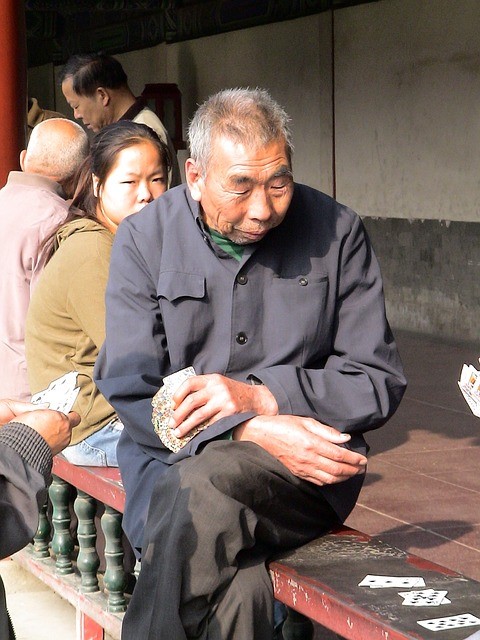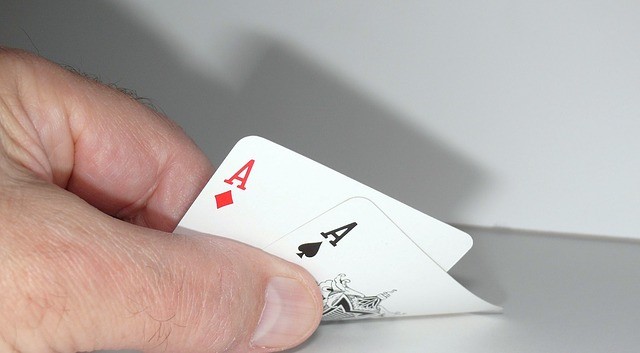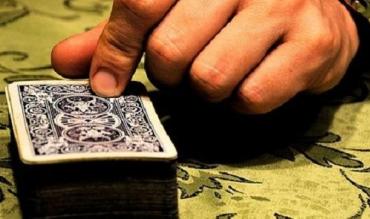We’ve all heard it a thousand times, a thousand ways: technology brings us closer to those far away, but distances us from those closest to us. With so many of us constantly on our devices, it can feel like we’re missing out on opportunities for truly rewarding personal interaction. Fortunately, we’ll always have cards!
Card games are an excellent way to spend time with your loved ones and can even be an educational opportunity for all. This guide will illustrate all the ways you can use a simple card game to improve your relationships with those at any ability, give yourself a mental edge, and create long-lasting memories and traditions. So unplug and embrace the idea of being “old fashioned” — the benefits are well worth it!
Relationship-Building with Card Games
So often we get caught up in our own lives and forget to nurture our relationships, whether they’re romantic, friendly, or familial. Playing cards is one of the easiest and most effective ways to bond with others, and the best part is that because it’s fun, everyone will look forward to it.
Card games can be played just about anytime, anywhere, with anyone. A deck is small and portable enough to keep in your car or even your pocket, and many games don’t require much noise so they aren’t disruptive. You can add some fun to a first date at the park with a game of War, or pass the time with a quiet game of Rummy while stuck waiting at the DMV with your roommate. As long as you have a deck of cards, you never have to resort to absently scrolling through your phone instead of making a real connection with a pal!
This kind of leisure time is a great way to unwind — a fast-paced game like Slap Jack can help you burn off some steam, or a quiet game of Solitaire can give you some peace after a chaotic day. There’s no pressure to excel, and you’re prepared for the kinds of obstacles you might run into. You may not have total control over the way the cards fall, but you have a pretty good idea of what to expect. Perhaps best of all is that the ultimate goal isn’t winning, but enjoying the activity itself.

This laid back atmosphere makes playing cards a great activity to share with others. Conversation is usually light-hearted and playful in a way you don’t always experience under other circumstances. For instance, dinner parties may bring people together, but the dynamics can make them socially limiting: most of your conversations happen with the person directly next to you, and group chats usually stick to general topics that everyone can contribute to. But card games break up that stiff atmosphere and get adults excited about something they almost never get to do: play! Research tells us that playing is a great way for adults to burn off stress. A game of cards with the new neighbors or your old gang from high school easily breaks the ice among strangers and creates fun partnerships and interactions.
If you’re looking for a way to bond with someone from another generation, card games can be the first step to finding common ground. Perhaps you want to spend more time with your mother, who loves playing Hearts. Ask her to teach you how to play, and use the opportunity to find new ways to get to know her. Who originally taught her to play? Why is it her favorite card game? You can share your own childhood memories about seeing her play, and how now you always think of her when you see someone shuffling a deck. You can even teach her some tricks for card games that you’re good at, and then have a friendly competition to see how much you’ve each learned from each other.
It’s always rewarding to share the love of a card game with someone close to you — and you may even realize that the special time together is your favorite part.
All-Inclusive: Playing Cards at Any Ability
The trouble with many hobbies is that they aren’t easily adapted for people with disabilities. Playing cards isn’t physically demanding in general, and there are so many options at varying difficulty that there’s a game for just about anyone — regardless of cognitive level. Plus, many games are based on luck and chance, leveling the playing field for all.
There are options for people with low manual dexterity like oversized playing cards, automatic shufflers, and card stands. For someone with low vision, there are cards with large, sometimes multicolored print that can be more easily seen. This special equipment is low cost and easily bought online — you don’t have to go through a specialist, but your physical or occupational therapist may have some tools you can borrow!

Because of the laid back nature of card games, they are easy for people with low mobility to enjoy. Even group games are generally played sitting down, usually at a relaxed pace. Some people with disabilities suffer feelings of isolation and have trouble socializing with others; card games allow even the most demure of people to join in without there being too much pressure to engage. The game itself can act as a sort of buffer — participants can play and work their way up to more direct interaction at their own pace. Some may even have so much fun they are able to engage more while playing than they typically do throughout the day.
Playing cards is a great opportunity to hone a new skill, and it can even improve your dexterity. You can practice just about any time you want by yourself or with a partner. And once you get particularly good, you can sharpen your coaching skills by teaching others. It’s another safe outlet for engagement: more direct than just playing together, but still having the game act as a buffer.
This Is Your Brain on Cards: The Mind-Boosting Effects of Card Games
Many card games let you sharpen your math skills, but aren’t so complicated that it feels like work. A good card player strategizes, looks ahead and weighs potential outcomes. You have to problem solve quickly and discreetly. You might have to do quick mental math or use statistical analysis to plan your next move.
Card playing can give you other mental exercise as well. Some games require you to closely monitor which cards have been played, or note and analyze the behavior of other players. It’s often a test of memory, even if it’s just recalling how you saw your friend play a hand like this last week. Improving your recall can be helpful in every aspect of your life, from conversations with your partner to giving a presentation at work.
While you play and chat with others, you also have an opportunity to learn. If you’re playing with someone who grew up overseas, for instance, you can discover what life was like in another country. Or maybe your grandfather can tell you about his childhood in the small town you’re from, giving you insight into the history of your hometown.

Playing cards can even be an escape. There’s so much in life that you can’t control, whether it’s problems at work or blowing out a tire. In card games, the rules are always the same. There are a set number of possibilities, and even though that number might be exponential, it’s constant from round to round. You start to learn how to overcome obstacles, which can be a nice break from the far more complex challenges of everyday life. It gives some people a better sense of control. Even games of chance can be comforting in this way — your opponent has the exact same chances as you, and there are no unfair advantages.
Card games can also open the doors to conversation with those you’re struggling to make a connection with, and in turn, improve your overall state of happiness. It could be that you’re trying to mend fences with your sister after a family feud, so you play a few rounds of one of your favorite childhood card games. It might even help bring you closer to your partner during a rough patch; if you’re having trouble communicating, a game of cards can provide a safe, calm environment to talk. Even if you don’t discuss your issues, it might give you a break from the fighting to simply sit and enjoy each other’s company while chatting about the little things.
Playing cards is a chance to exercise your brain in an amusing way, and the more you do it, the better you get. It’s a wonderful opportunity to connect with others, and you can build all kinds of helpful skills in the process. So the next time you’re looking for a way to unwind after a long day at the office, consider breaking out that deck of cards and asking someone to join you!


